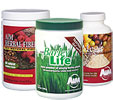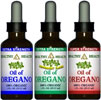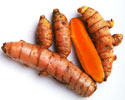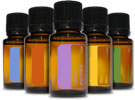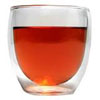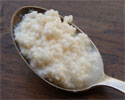The antimicrobial activity of plant oils and extracts has been recognized for many years. However, few investigations have compared large numbers of oils and extracts using methods that are directly comparable. In the present study, 52 plant oils and extracts were investigated for activity against Acinetobacter baumanii, Aeromonas veronii biogroup sobria, Candida albicans, Enterococcus faecalis, Escherichia coli, Klebsiella pneumoniae, Pseudomonas aeruginosa, Salmonella enterica subsp. enterica serotype typhimurium, Serratia marcescens and Staphylococcus aureus, using an agar dilution method. Lemongrass, oregano and bay inhibited all organisms at concentrations of ≤2·0% (v/v). Six oils did not inhibit any organisms at the highest concentration, which was 2·0% (v/v) oil for apricot kernel, evening primrose, macadamia, pumpkin, sage and sweet almond. Variable activity was recorded for the remaining oils. Twenty of the plant oils and extracts were investigated, using a broth microdilution method, for activity against C. albicans, Staph. aureus and E. coli. The lowest minimum inhibitory concentrations were 0·03% (v/v) thyme oil against C. albicans and E. coli and 0·008% (v/v) vetiver oil against Staph. aureus. These results support the notion that plant essential oils and extracts may have a role as pharmaceuticals and preservatives.
